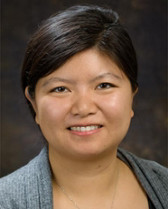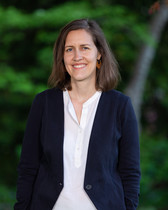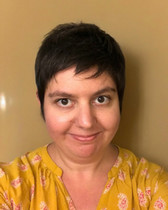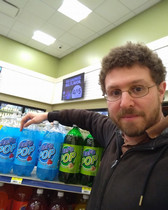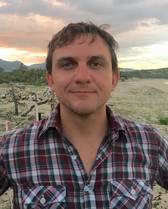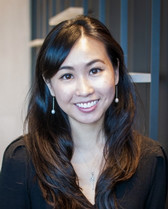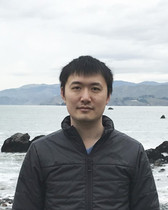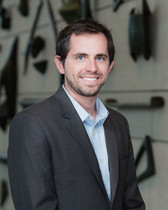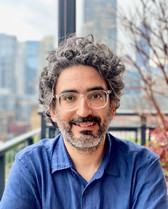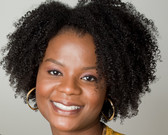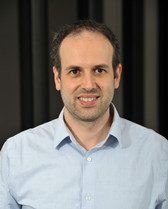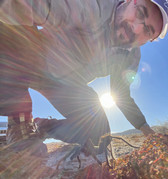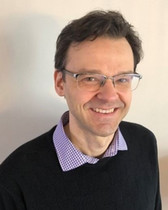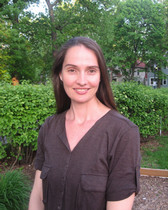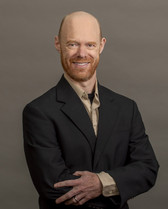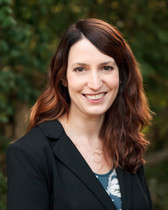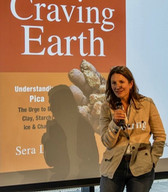Tenured and Promoted Faculty 2023-2024
Tenured Faculty 2023-24
Xiaomin Bao
Associate Professor
- PhD Institution: Iowa State University
- Home Department: Molecular Biosciences
- Profile
Julia Behrman
Associate Professor
- PhD Institution: New York University
- Home Department: Sociology
- Profile
Michelle Driscoll
Associate Professor
- PhD Institution: The University of Chicago
- Home Department: Physics and Astronomy
- Profile
Jeff Eden
Associate Professor
- PhD Institution: Harvard University
- Home Department: History
- Profile
Brendan Fernandes
Associate Professor
- MFA Institution: The University of Western Ontario
- Home Department: Art Theory and Practice
- Profile
Photographer, Kevin Penczak.
Daniel Horton
Associate Professor
- PhD Institution: University of Michigan
- Home Department: Earth and Planetary Sciences
- Profile
Annie Liang
Associate Professor
- PhD Institution: Harvard University
- Home Department: Economics
- Profile
Yuchen Liu
Associate Professor
- PhD Institution: Princeton University
- Home Department: Mathematics
- Profile
Daniel Majchrowicz
Associate Professor
- PhD Institution: Harvard University
- Home Department: Asian Languages and Cultures
- Profile
Reza Vafabakhsh
Associate Professor
- PhD Institution: University of Illinois
- Home Department: Molecular Biosciences
- Profile
Promoted to Full Professor 2023-24
Traci Burch
Professor
- PhD Institution: Harvard University
- Home Department: Political Science
- Profile
Claude-André Faucher-Giguère
Professor
- PhD Institution: Harvard University
- Home Department: Physics and Astronomy
- Profile
Claude-André Faucher-Giguère is a theoretical astrophysicist best known for his research on the multi-scale physical processes that drive galaxy formation, including star formation, galaxy-black hole co-evolution, and connections with the intergalactic medium and cosmology. He and his group use a multi-pronged approach including large-scale numerical simulations, analytic modeling, and comparisons with observational data.
Faucher-Giguère is a member of the Center for Interdisciplinary Exploration and Research in Astrophysics (CIERA) [link: http://ciera.northwestern.edu] and is a founder and co-PI of the influential FIRE ("Feedback In Realistic Environments") galaxy formation simulation project [link: http://fire.northwestern.edu].
Faucher-Giguère has received multiple distinctions for his research, including the Eric R. Keto Prize in Theoretical Astrophysics from Harvard University, an NSF CAREER award, and a Cottrell Scholar Award. He has been named a Highly Cited Researcher in Space Science every year since 2019.
Marco Gallio
Professor
- PhD Institution: Karolinska Institute (Stockholm, Sweden)
- Home Department: Neurobiology
- Profile
Marco Gallio is a geneticist and neurobiologist who studies how animals sense and respond to changes in external temperature and humidity. Using the common laboratory fruit fly, Drosophila melanogaster, his laboratory at the Department of Neurobiology has elucidated the basic molecular and cellular mechanisms underlying the species-specific preference for a particular temperature and humidity range. Increasingly, the Gallio Lab's research has expanded to include “wild” insect species, such as those adapted to life in hot, dry deserts or on snow-covered mountains. Their goal is to understand the diverse neurobiological and physiological mechanisms that enable animals to adapt to various thermal environments and respond to climate change. This work is significant from a biomedical perspective as it advances our understanding of how the brain processes external stimuli, including both pleasant and painful temperature. Moreover, given the limited knowledge about how animal behavior is impacted by ongoing climate change, understanding how insects adapt to different temperature and humidity conditions may help us better anticipate—and potentially mitigate—the impacts of climate change on insects and on the many ecosystems that depend on them.
Marco received his MS at the University of Pavia (Italy) and his PhD at the Karolinska Institute (Sweden). He carried out his postdoctoral research at University of California, San Diego and Columbia University as a HHMI fellow before joining Northwestern University in 2012. His work has been funded by grants from the National Institutes of Health, Pew Charitable Trust, the McKnight Foundation, the Paula M. Trienens Institute for Sustainability and Energy and the NSF-Simons National Institute for Theory and Mathematics in Biology. The Gallio’s lab research has been published in high profile journals such as Nature, Nature Neuroscience, Nature Communications and Current Biology. Marco Gallio is currently the director of the WCAS Master program in Neurobiology.
Andrew Geraci
Professor
- PhD Institution: Stanford University
- Home Department: Physics and Astronomy
- Profile
Sarah Jacoby
Professor
- PhD Institution: University of Virginia
- Home Department: Religious Studies
- Profile
Daniel Molden
Professor
- PhD Institution: Columbia University
- Home Department: Psychology
- Profile
Sadie Wignall
Professor
- PhD Institution: University of California, Berkeley
- Home Department: Molecular Biosciences
- Profile
Sadie Wignall is a cell biologist and geneticist whose research focuses on meiosis, a specialized form of cell division that generates sperm and eggs during reproduction. Notably, meiosis in females is especially error prone: it is estimated that 10-25% of human embryos have the wrong number of chromosomes, and most of these defects arise from problems generating the egg cells. However, why the divisions of female reproductive cells are so error prone is not understood. Research in the Wignall lab is focused on investigating this important problem, by combining state-of-the-art microscopy with genetic, genomic, and biochemical approaches in the model organism C. elegans. She has received multiple awards to support her research over the years including the Damon Runyon Cancer Research Foundation Innovation Award, the March of Dimes Basil O’Connor Award, the V Foundation for Cancer Research “V Scholar” Award, and multiple grants from the National Institutes of Health.
Wignall also serves as the Director of the Interdisciplinary Biological Sciences (IBiS) PhD program at Northwestern, and as a Co-Leader of the Cancer Epigenetics and Nuclear Dynamics (CEND) program of the Robert H. Lurie Comprehensive Cancer Center. In addition, she serves on the Editorial Board of the journal Molecular Biology of the Cell, and she is a member of the Public Policy Committee of the American Society for Cell Biology, where she has worked to lobby Congress to support the scientific enterprise.
Sera Young
Professor
- PhD Institution: Cornell University
- Home Department: Anthropology
- Profile
Sera Young is an anthropologist and nutritionist who has dedicated her career to understanding how women, especially in low-resource settings, cope to preserve their health and that of their families.
After her BA in Cultural Anthropology (U of Michigan), she pursued an MA in Medical Anthropology (U of Amsterdam), where she studied maternal anemia in Zanzibar, Tanzania. For her PhD in International Nutrition (Cornell) she returned to observations about anemia in Zanzibar: that anemic women craved earth, raw starch and other non-food substances (pica). During her post-doctoral and faculty positions at University of California (UC) Berkeley, UC Davis, and UC San Francisco, she was involved with a number of studies pertaining to HIV, food insecurity, and infant feeding in sub-Saharan Africa.
Professor Young’s current research is focused on quantifying human experiences with problems with water, and unpacking their consequences for nutrition, health, and well-being. To that end, she led the development of the Water InSecurity Experiences (WISE) Scales, the first cross-country equivalent way of measuring water access and use (www.WISEscales.org). The WISE Scales have now been used by hundreds of entities in more than 50 countries, and were recently recommended by the United Nations’ Joint Monitoring Program for global monitoring.
She has co-authored more than 170 peer-reviewed publications and been funded by the National Institutes of Health, the National Science Foundation, USAID, and FCDO/BMGF; awards include the Margaret Mead Award for her book Craving Earth, the Nevin Scrimshaw Prize, an Andrew Carnegie Fellowship, and a Leverhulme Visiting Professorship at the London School of Hygiene and Tropical Medicine.
